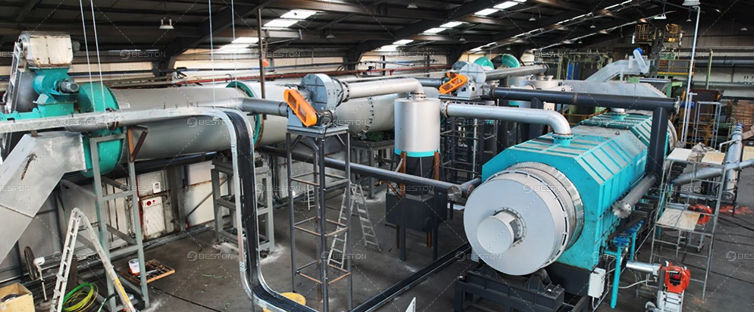Future Growth Trajectory of the BCR Market
- arbourz
- Aug 22, 2025
- 2 min read
The biochar carbon removal (BCR) market is entering a phase of accelerated growth, driven by regulatory frameworks, private sector commitments, and advancements in thermal conversion technology. With carbon neutrality targets gaining urgency, BCR is increasingly recognized as a scalable and verifiable pathway for durable carbon sequestration. Market participants, ranging from agricultural enterprises to industrial manufacturers, are aligning investments with the rising demand for carbon removal credits.
Expanding Policy and Regulatory Support
Governmental policies are shaping the landscape of BCR adoption. Incentive structures, including carbon pricing mechanisms and tax credits, are creating favorable conditions for large-scale deployment. Jurisdictions across Europe and North America have incorporated biochar into climate strategies, positioning it alongside other negative-emission solutions. This policy momentum not only stimulates demand but also lowers the financial risk associated with investment in biochar machine development.
Integration with Carbon Credit Markets
BCR is gaining credibility in voluntary carbon markets due to its measurable permanence and co-benefits. Carbon registries are refining methodologies for quantifying biochar-based removal, enhancing transparency for credit buyers. As corporations pursue net-zero goals, BCR offers a cost-effective option compared with more capital-intensive technologies such as direct air capture. Market liquidity is expected to deepen as verification protocols mature, enabling more widespread participation from both suppliers and buyers.

Advancements in Pyrolysis Technology
Technological innovation is reshaping the economic viability of the BCR market. Modern biochar pyrolysis equipment designs emphasize higher thermal efficiency, optimized gas recirculation, and modular scalability. These improvements lower operating costs and increase throughput capacity. Automated feedstock handling, enhanced emission controls, and integrated energy recovery systems further elevate operational reliability. Such advancements expand the range of applicable feedstocks, from agricultural residues to industrial byproducts, strengthening supply resilience.
Diversified Application of Biochar
Beyond its role in carbon sequestration, biochar is penetrating diverse markets. Agricultural applications, such as soil amendment and nutrient retention, remain the largest segment. However, new frontiers are emerging, including biochar utilization in cement, asphalt, and advanced composites. These industrial uses amplify market demand while extending the lifecycle of carbon storage. Integration into wastewater treatment and livestock management further diversifies the biochar value chain, solidifying its role in both environmental and economic ecosystems.
Competitive Dynamics and Investment Trends
The BCR market is attracting a surge of private capital. Venture funds, institutional investors, and corporate buyers are channeling resources into pyrolysis plant expansion and project development. Strategic partnerships between technology providers and feedstock suppliers are accelerating deployment, while carbon credit off-take agreements secure predictable revenue streams. Competitive differentiation increasingly revolves around efficiency metrics, scalability, and co-product valorization, compelling operators to innovate continuously.
Long-Term Prospects
The trajectory of the BCR market points toward sustained expansion. As demand for durable carbon credits intensifies, biochar is well positioned to occupy a significant share of global carbon removal portfolios. The convergence of supportive policy, technological refinement, and diversified application ensures long-term resilience. With continuous investment and innovation, the BCR market is set to evolve from an emerging niche into a cornerstone of climate mitigation infrastructure.









Comments